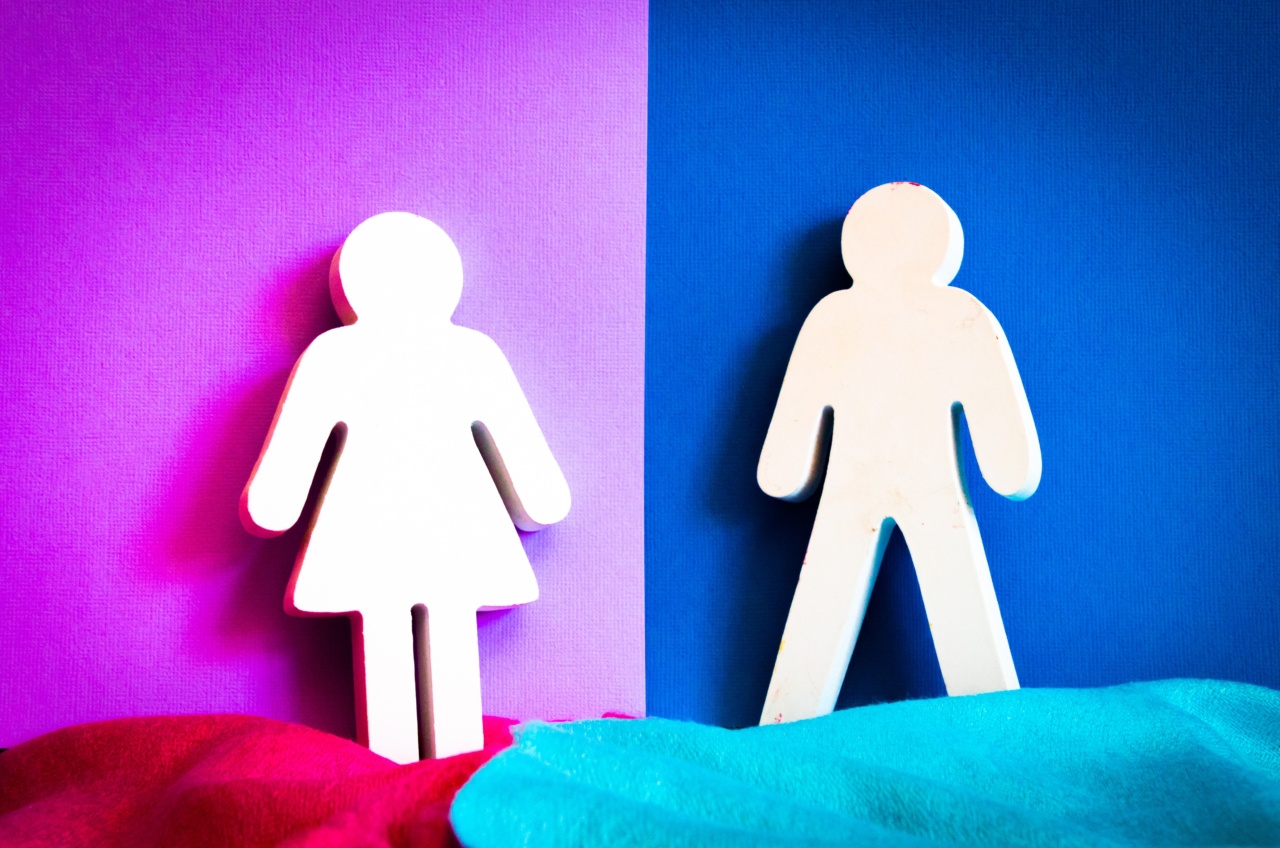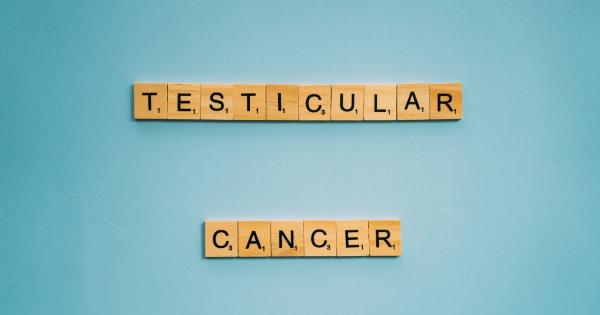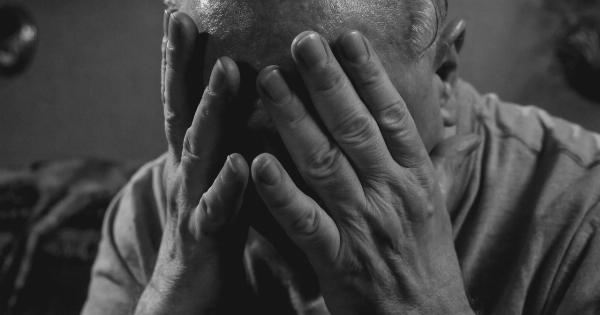Hormones play a crucial role in regulating various bodily functions, including growth, reproduction, metabolism, and mood.
While often associated with women, hormonal imbalances can also occur in men and can have significant effects on their overall health and well-being. In this article, we will explore the signs and symptoms of male hormonal imbalances and discuss ways to address and manage them.
1. Testosterone Deficiency
One of the most common hormonal imbalances in men is testosterone deficiency, also known as low testosterone or hypogonadism.
Testosterone is the primary male sex hormone responsible for the development of male reproductive organs, muscle mass, bone density, and facial hair.
A decline in testosterone levels can lead to various symptoms, including:.
- Reduced sexual drive and erectile dysfunction
- Fatigue and decreased energy levels
- Depression and mood swings
- Loss of muscle mass and strength
- Increase in body fat
- Difficulty concentrating and memory problems
- Decreased bone density and osteoporosis
2. Estrogen Dominance
While estrogen is predominantly considered a female hormone, men also produce it in smaller amounts. However, when estrogen levels become imbalanced and surpass testosterone levels, it can lead to estrogen dominance in men.
Signs of estrogen dominance in men include:.
- Enlarged breasts (gynecomastia)
- Loss of muscle mass
- Decreased libido and sexual dysfunction
- Increased body fat, particularly in the abdominal area
- Mood swings and irritability
- Water retention and bloating
3. Thyroid Dysfunction
The thyroid gland plays a vital role in regulating metabolism and energy levels. When the thyroid gland doesn’t produce enough thyroid hormones (hypothyroidism) or produces too much (hyperthyroidism), it can lead to hormonal imbalances in men.
Common symptoms of thyroid dysfunction include:.
- Weight gain or loss without apparent cause
- Fatigue and low energy levels
- Difficulty concentrating and memory problems
- Depression and mood swings
- Changes in bowel movements
- Feeling too hot or too cold
- Hair loss
4. Cortisol Imbalance
Cortisol, known as the stress hormone, is produced by the adrenal glands.
While cortisol serves a critical role in the body’s stress response, chronic elevation of cortisol levels due to ongoing stress can disrupt hormonal balance and have adverse impacts on health.
Signs of cortisol imbalance in men may include:.
- Weight gain, particularly in the abdominal area
- Difficulty losing weight
- Insomnia and sleep disturbances
- Increased blood pressure
- Changes in appetite
- Irritability and mood swings
- Decreased libido
5. Insulin Resistance
Insulin is a hormone produced by the pancreas that helps regulate blood sugar levels. Insulin resistance occurs when the body’s cells become less responsive to insulin, leading to elevated blood sugar levels.
This condition is often associated with type 2 diabetes and can also lead to hormonal imbalances in men.
Some signs of insulin resistance in men include:.
- Weight gain, particularly around the abdomen
- Increased hunger and food cravings
- High blood pressure
- Fatigue and decreased energy levels
- Difficulty concentrating and brain fog
- Low libido and sexual dysfunction
- Increased risk of cardiovascular disease
6. Adrenal Fatigue
Adrenal fatigue is a term used to describe a state of chronic fatigue and burnout caused by prolonged stress, often leading to hormonal imbalances.
The adrenal glands, located on top of the kidneys, produce hormones involved in managing stress responses.
Common signs of adrenal fatigue in men include:.
- Persistent fatigue and lack of energy
- Difficulty coping with stress
- Reduced immune function
- Mood swings and irritability
- Unexplained weight loss or gain
- Low libido and sexual dysfunction
- Brain fog and difficulty concentrating
7. Growth Hormone Deficiency
Growth hormones play a crucial role in regulating growth, body composition, and metabolism. While growth hormone deficiency is more common in children, adults can also experience hormonal imbalances related to inadequate production of growth hormone.
Signs and symptoms of growth hormone deficiency in men include:.
- Loss of muscle mass and strength
- Increase in body fat, particularly around the midsection
- Reduced exercise capacity
- Alterations in cholesterol levels
- Decreased bone density
- Impaired cognitive function
- Depression and anxiety
8. Andropause (Male Menopause)
Similar to menopause in women, andropause refers to the gradual decline in testosterone levels as men age. Though the decline is more gradual compared to women’s menopause, it can still cause hormonal imbalances and various symptoms.
Common signs of andropause in men include:.
- Reduced sexual drive and erectile dysfunction
- Hot flashes or excessive sweating
- Insomnia and sleep disturbances
- Mood swings and irritability
- Decreased muscle mass and strength
- Loss of bone density
- Depression and anxiety
9. Prolactin Imbalance
Prolactin is a hormone primarily responsible for milk production in women. However, men also produce small amounts of prolactin. Elevated prolactin levels in men can result in hormonal imbalances and various symptoms.
Some signs of prolactin imbalance in men include:.
- Erectile dysfunction
- Enlarged breasts (gynecomastia)
- Decreased libido and sexual dysfunction
- Infertility
- Nipple discharge
- Decreased muscle mass
- Depression and anxiety
10. Insufficient Vitamin D Levels
Vitamin D is a hormone that plays a crucial role in bone health, immune system function, and overall well-being. Insufficient levels of vitamin D can lead to hormonal imbalances and various health issues.
Signs of vitamin D deficiency in men include:.
- Fatigue and decreased energy levels
- Mood swings and depression
- Decreased muscle mass and strength
- Bone pain and osteoporosis
- Increased risk of infections
- Impaired wound healing
- Cognitive impairment
It is essential to recognize the signs of hormonal imbalances in men to seek appropriate medical interventions and treatments.
If you suspect you may be experiencing any of these symptoms, consult with a healthcare professional who can conduct thorough evaluations and provide personalized recommendations for hormone balance and overall well-being.






























